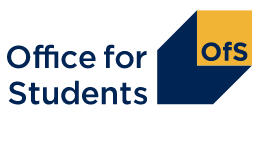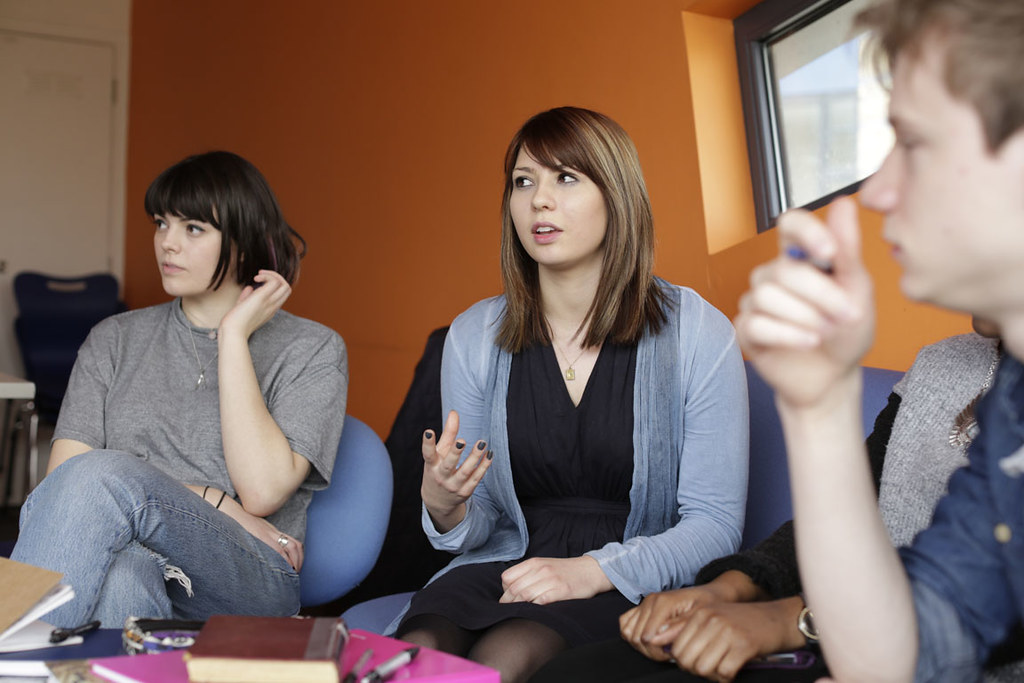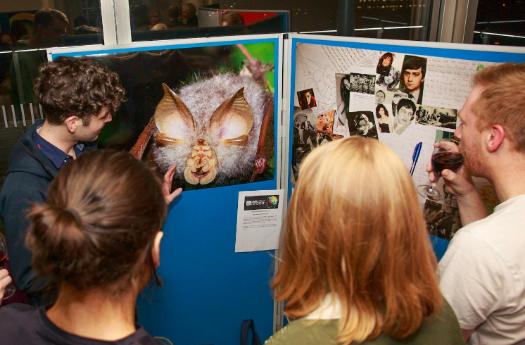Catalyst Fund Project
Queen Mary was one of 17 successful institutions that received funding from Research England and the Office for Students to improve support for the mental health and wellbeing of postgraduate researchers.
The project ran between April 2018 and January 2020 and Queen Mary is committed to continuing to offer the initiatives launched during that time.
Project scope and outcomes
1. Launch of weekly, facilitated support groups for PGR students
- The PhD Support Groups are available to any PGR who needs support with personal, emotional and relationship issues that arise from the doctoral experience. This includes PGRs who have a pre-existing or emerging mental health disorders, mental health problems or mental distress.
- The groups are jointly facilitated by a Counsellor and a Researcher Developer and operate within the Advice and Counselling Service’s existing clinical and risk procedures, ensuring timely referrals into alternative support according to need.
- Anonymised feedback has been used to devise a list of areas to address at the institutional level and to measure the effectiveness of the support groups in improving participants' wellbeing.
- Access a summary of the results and find out more in the article Enhancing postgraduate researcher wellbeing through support groups.
- Participants’ subjective wellbeing scores increased considerably over the eight weeks of attending a group and improved from initial score ranges associated with risk of depression or psychological distress.
- Participants also felt less isolated and anxious, more satisfied with their life and work-life balance and more confident that they could complete their degree within the institutional timeframe.
2. Introduction of emotional resilience and resourcefulness sessions for PGRs
- The annual Cohort Days and the expanded 'Survive and Thrive' programme reached just over 500 PGRs during the project.
- The aim of this strand was to send a clear message that the tools provided to manage the emotional pressures are equally important for a successful PhD journey as the academic skills training.
- The new sessions for the Cohort Days were developed in collaboration with the Charlie Waller Trust and the session resources are free to download (available under the 'Live' section on the relevant OfS page).
Results
The majority of attendees reported:
- finding the training useful in helping them manage their mental health and wellbeing;
- being more aware of how to improve their mental health and wellbeing and where to go for support;
- feeling more supported by the University;
- being more likely to seek support with their mental wellbeing.
3. Development of new resources for PhD supervisors to cover pastoral support
- Development of a half-day training workshop to cover pastoral support, including recognising first signs of deteriorating mental health, starting a conversation and responding to a student in crisis.
- Embedding a 30-min excerpt of this training within the mandatory training for all new supervisors.
- The workshop was developed in collaboration with the Charlie Waller Trust
Results
79% of attendees:
- rated their knowledge of the subject as ‘good’ or ‘very good’ after the workshop (compared to 24% before the workshop);
- stated that they probably or definitely will use what they had learned during the session (which includes starting a conversation on mental health and wellbeing issues, and signposting PGRs to an appropriate service);
- stated that they probably or definitely will recommend the training to a colleague.
4. Delivering a PGR wellbeing campaign and events
- The aim was to address issues like social isolation, and “toxic” sub-cultures of overwork and ableism, contributing towards a change in culture. The message that needs to reach all PGRs is that Queen Mary promotes a culture of support.
- The campaign launched on 30 January 2019 with the event Is it just me? Discussing mental health and the PhD experience, which was followed by a month of wellbeing workshops and activities that encouraged PGRs to look after their wellbeing across the 5 dimensions of wellness. To support the campaign, the Researcher Development programme and the GradFest in February 2019 had a focus on wellbeing.
Results
The interim results of the project were presented at the Vitae Researcher Development International Conference 2019 as a Catalyst Fund poster - 2019 Vitae International Conference [PDF 1,754KB].
The results from the PhD Support Groups have been published as an article: Panayidou, F. and Priest, B. (2021), "Enhancing postgraduate researcher wellbeing through support groups", Studies in Graduate and Postdoctoral Education.
Open-access training resources
Queen Mary University of London worked with the Charlie Waller Trust to develop the following training sessions for PhD students and PhD supervisors during this project:
- Year 1 PhD Day - Your PGR journey: getting the best start
- Year 2 PhD Day - Keeping up the momentum
- Year 3 PhD Day - Crossing the finishing line
- Mental Health and Wellbeing in PGRs: Guidance for Supervisors
The PhD sessions, tailored for researchers in their first, second and third years, cover topics from stress management to self-compassion and optimism for the future. Practical tools, such as mapping a support network, are designed to help researchers manage emotional pressures, acknowledging that this is as important as academic skills training in navigating the PhD journey successfully.
The workshop for supervisors and staff supporting PGRs was designed to enhance pastoral support and increase mental health awareness. The training includes guidance on recognising signs of poor mental health, practical advice on talking and listening to students in crisis and highlights the importance of caring for your own mental wellbeing as a supervisor.
The resources for these training sessions are free to download and have been updated to include recommendations on online delivery.
Teams involved in the project
- Researcher Development
- Advice and Counselling Service
- Student Life
- Doctoral College
- Queen Mary PGRs
Contacts
The project manager was Dr Magda Chanopoulou, Head of Student Life. The training initiatives and evaluation of the project were led by Dr Fryni Panayidou, Researcher Development Adviser (PGRs) in the Researcher Development team.




